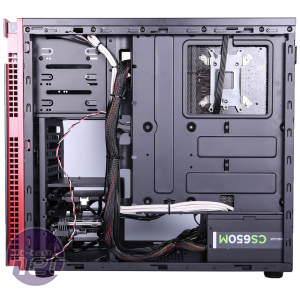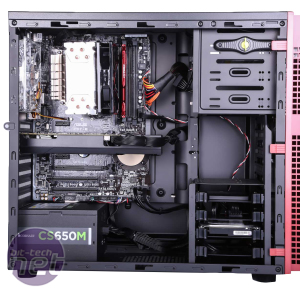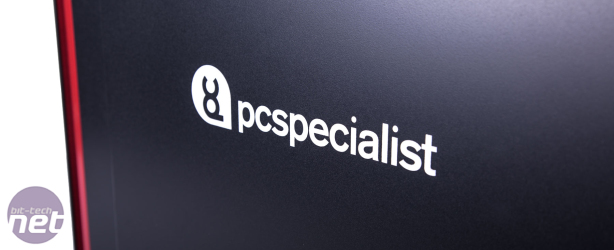PC Specialist Apollo 703 Review
July 8, 2015 | 11:57
Companies: #asus #in-win #pc-specialist #utopia

Performance Analysis
As we mentioned at the beginning of the review, this isn't a 4K system, but as our gaming benchmarks show, you will be able to get away with 2,560 x 1,440 gaming in easy-to-run games, but you'll have to dial down the settings in tough games such as Crysis 3. For example, here, the Apollp 703 managed a respectable minimum frame rate of 38fps and average of 46, in Crysis 3 at 1080p, but the minimum fell below 25fps at 2,560 x 1,440.Battlefield 4 was playable, just, but most readers would want to dial down the settings a little to get that minimum away from 25fps and nearer 30fps. The system is essentially doing battle with the R9 270X and R9 280, although we should note that those results are from our old graphics test rig that's equipped with a slightly slower CPU. It was consistantly quicker than the Radeon R9 270X and traded blows with the R9 280. The next step up in Nvidia terms is the GTX 970 and this proved to be in a different league and was very comfortable at 2,560 x 1,400 - worth remembering if you plan on upgrading to a larger monitor in future. The Samsung EVO SSD helped the Apollo 703 to some tidy scores in our storage benchmarks too.
The sizeable overclock resulted in some pretty good scores in our other benchmarks, where the PC sat between and stock and overclocked Core i7-4790K in many tests, although if rendering is on the cards then you'll likely want to opt for the latter as it was consistantly much faster in Terragen 3 and Cinebench R15. Despite the overclocked CPU, the system drew a paltry 289W from the wall under full load and produced much less heat too than the other systems we've looked at recently
Speaking of heat, there are some concerns over the CPU temperature, which regularly topped a delta T of 61°C, with an ambient room temperature of 26°C, leading to a CoreTemp reading of nearly 90°C. This is a bit toasty, although this was using Prime95, which is a worst case scenario and certainly not what you'll see while gaming. The CPU cooler was extremely quiet too, as was the graphics card and case fans. The PSU let the Apollo 703 down a bit, though - under heavy loads it's fan was by far the noisiest component in an otherwise quiet PC.
Conclusion
There's no disputing the great value the PC Specialist Apollo 703 offers. It's cheaper than buying the individual components yourself and comes ready to use with a warranty. There are one or two niggles though. The CPU gets hot under heavy loads and while it's within limits, even with our lab temperature of 26°C it's a little close to them for our liking. The PSU also makes itself known at heavy loads when the system is otherwise fairly quiet too, although both these issues aren't uncommon with systems at this price and it's unlikely you'd replicate our load tests in every day use.Thankfully, these issues are easily fixed using PC Specialist's extensive configurator, which usefully allows you to tweak just about any aspect of the PC. For example, you could upgrade to an all-in-one liquid cooler for another £10 or so, or fit two 8GB DIMMs or a different PSU. Out of the box our exact system specs would need tweaking a little for a top score, but as it is, the Apollo 703 still offers excellent value and plenty of grunt for 1080p gamers.

-
Speed17 / 25
-
Design21 / 25
-
Value24 / 25
-
Hardware21 / 25


MSI MPG Velox 100R Chassis Review
October 14 2021 | 15:04











Want to comment? Please log in.